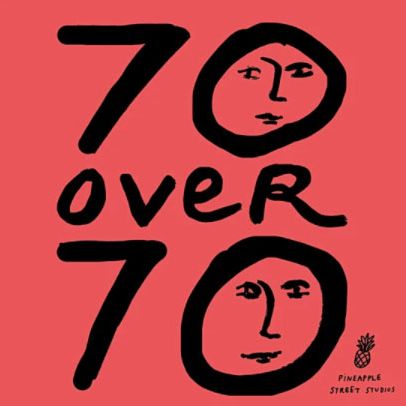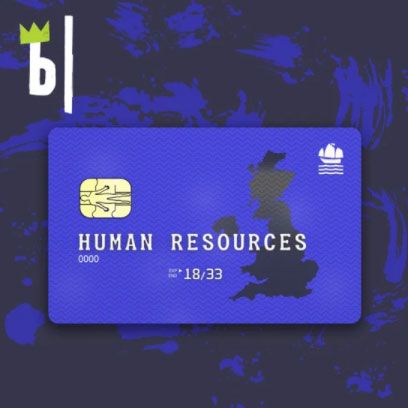
Tell me what youÔÇÖre listening to. Find me┬áon Twitter┬áor reach me over email:┬á[email protected].
70 Over 70
Apple Podcasts | Spotify | Website
Listen, thereÔÇÖs going to be no pseudo-objectivity with this entry. IÔÇÖve been listening to Max LinskyÔÇÖs stuff for a very long time, between his capacity as one-third of the popular┬áLongform┬ápodcast and as the co-founder of Pineapple Street, which I covered substantially throughout its run as an independent studio that was eventually sold off in 2019 to Entercom (which has nowadays rebranded to the unfortunately named Audacy). As it happens, I also consider him a personal friend.
All of which is to say IÔÇÖm very interested in his latest project,┬á70 Over 70. The podcast features Linsky taking his signature interview style ÔÇö sneakily cutting, in the sense that it packages an aggressive interest in the existential within a patina of gentle, feel-good public-radio adjacence ÔÇö and applying it to a demographic that is perhaps the very embodiment of the existential: people over the age of 70.
At this writing, there are three episodes out for your consumption. The first takes the form of a brief prologue, which sees Linsky interviewing his father and, in doing so, lays out the fundamental themes you should expect from the show to come: reflections on the process of becoming, a lifetime of choices, lessons learned, what it means to live well, and, of course, the prospects of death. The other two possess the showÔÇÖs standard form: Each installment kicks off short interviews with ÔǪ I suppose one could describe them as ordinary non-famous people. The guests seem to run the gamut: Available now are interviews with Sister Helen Prejean, chiefly known as the leading American advocate against the death penalty, and Andr├® De Shields, the award-winning actor.┬áAccording to a profile in the New York┬áTimes, future guests will include Dionne Warwick, Madeleine Albright, Dan Rather, and Norman Lear.
As the title indicates, the show will produce 70 episodes (at least). ItÔÇÖs an ambitious undertaking, and while IÔÇÖm excited to dig into it, I expect to dip in and out over the long run, as engagement with interview shows like these tend to come down to the hook of a particular guest.
IÔÇÖm also, frankly, not quite sure how much existentialism I can take on a weekly basis, a reservation driven in part by some generational angst on my end: The world continues to burn, in part due to the choices made by the generation in question, and I canÔÇÖt be certain IÔÇÖll be able to separate that feeling from listening to the show. This, of course, is purely just me speaking as a somewhat younger person; who knows, maybe 70 Over 70 will be enough for me to get past that. Time will tell.
Human Resources
ÔÇ£What do footballers, influencers, and celebrities have in common with slavery?ÔÇØ ThatÔÇÖs the principal provocation posed at the very top of the trailer for┬áHuman Resources, the latest podcast from the U.K. podcast publisher Broccoli Productions thatÔÇÖs equal parts academic criticism and personal history.
The answer, of course, is complex. The ÔÇ£valueÔÇØ we place on people in modern capitalism is often based on the prices they derive from various markets, whether itÔÇÖs a team contract signed by an athlete or the copious brand deals signed by an influencer. WhatÔÇÖs more, this is a condition not merely contained to the rich, famous, and commercially productive, but equally applicable to us everyday civilians, who exists as workers in company structures where our values are recorded and managed in the spreadsheets of chief financial officers, corporate consultants, and, yes, human-resource departments (hence the title of the show).
This line of thinking has been floating around for a bit, chiefly among academic circles, and with this series, the journalist Moya Lothian-McLean is looking to push these ideas deeper into the public by unpacking the argument through a reframing of British historiography. She hooks the enterprise on an effort to trace the roots of British slavery, sketching out the connection between the development of that damned trade and the frameworks that govern how corporations relate to workers in the capitalist system of today.
There is, also, a personal layer to the proceedings. As established in the first episode, part of what catalyzed Lothian-McLeanÔÇÖs pursuits with this project is a question of her own history. Born of a white mother and a Black father from the Caribbean ÔÇö who left her family when she was very young, and later died ÔÇö Lothian-McLeanÔÇÖs journey into these questions additionally comes from an attempt at greater self-understanding.
IÔÇÖve only heard the first two episodes, and IÔÇÖm finding┬áHuman Resources┬áto be an intriguing vessel to work through these complex, thorny ideas. Particularly noteworthy is the writerly flair thatÔÇÖs actively present in the scripting, rich with a strong sense of imagery. ThereÔÇÖs a real showmanship to the show which is much-needed, as its bones are essentially made up of a series of long, edited conversations with different academics, stitched together by sharp narration and effective scoring.
Meanwhile
ÔÇó I absolutely adore┬áFrog of the Week, which offers three-minute episodes doing exactly what it says on the box. I could listen to a thousand of these.
ÔÇó Former Dear Prudence columnist and author Danny Lavery has a new show out with Slate this week:┬áBig Mood, Little Mood, which will continue to fit in the advice-letter-columnist mold.
And thatÔÇÖs a wrap for┬á1.5x Speed! Hope you enjoyed it. WeÔÇÖre back next week, but in the meantime: Send podcast recommendations, feedback, or just say hello at┬á[email protected].
More 1.5x Speed
- The Podcasts Caitlin Pierce Is Listening To Right Now
- The Longform Episodes We WonÔÇÖt Forget
- What Rachel Maddow Is Listening To




